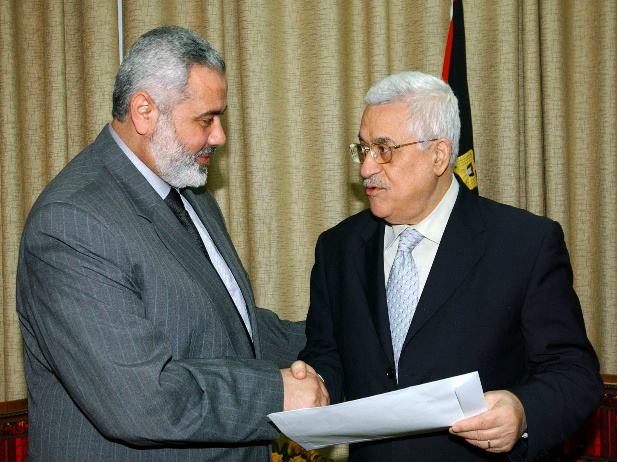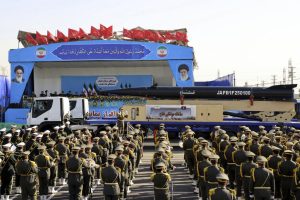Xenophobia in Turkey is well-documented. The 2007 Pew Global Attitudes surveys, for example, showed that negative views of the United States were “widespread and growing” in Turkey, a NATO member and European Union applicant. According to the Pew Research Center:
“Of the 10 Muslim publics surveyed in the 2006 Pew Global Attitudes poll, the Turkish public showed the most negative views, on average, toward Westerners.
“On this scale, the average for Turkey is 5.2, which is a higher level of negativity than is found in the other four Muslim-majority countries surveyed (Egypt, Indonesia, Jordan and Pakistan) as well as among the Muslim populations in Nigeria, Britain, Germany, France and Spain.
“Large and increasing majorities of Turks also hold unfavorable views of Christians and Jews.”
The 2014 Pew survey of Turkish public opinion also found a major rise in xenophobia, revealing that Turks expressed a strong dislike for just about everyone.
“Such anti-Americanism inherent in the population of an American ally is noteworthy,” wrote Professor Doug Woodwell. “Turkish public opinion as a whole is perhaps the most xenophobic on earth… Whatever the future, at least Americans can rest assured; while Turks may have a lower opinion of the US than any other country, they are equal opportunity haters.”
“Turkey Alone Against the World”
Turkey’s hostility toward outsiders has a long history. Ever since the Turkish republic was founded in 1923, Turkish schoolchildren have been taught myths that propagate “Turkey alone against the world.”
The narrative taught in Turkish schools goes like this: World powers — including the Western and Arab nations — brought on the collapse of the Ottoman Empire. Greeks, Armenians, Kurds and all non-Turkish peoples in Anatolia betrayed the Turks and revolted. Then, in the 1920s, the Western powers attacked the Turks, the rightful owners of Anatolia, who had been abandoned by everyone. But the Turks heroically fought back, miraculously defeated the enemies and traitors, and re-established their country, which is still surrounded by enemies busy plotting schemes to destroy Turks and Turkey.
This narrative does not contain a single critical view of Turkish history. Every historical act carried out by Turks is praised and idealized. History textbooks do not utter a single word about the crimes committed by Turkey against the country’s minorities. Moreover, several Turkish government and military officials have used insulting expressions targeting minorities countless times — proudly and recklessly — making racism and the suspicion or hatred of non-Turks mainstream realities in Turkish politics.
There is even an official “Turkish Theory of History,” created by the new Turkish Republic in 1930s with the encouragement of Mustafa Kemal Ataturk, the republic’s founder. Through the “Turkish Theory of History,” the Turkish people were fed with supremacist, racist myths in which Western civilization was belittled and the so-called Turkish civilization was extolled.

A propaganda poster from the time of Mustafa Kemal Ataturk’s rule shows Ataturk slaying opponents of his reform. (The sword features the word “reform”) |
According to this theory, it was the Turks, the first residents of the Central Asia, who established the first civilization of the world. Later, due to the rising levels of drought in the Central Asia, Turks spread to several parts of the world and brought civilization to the rest of the world. Turks had the main role in establishing and advancing the Islamic civilization, as well.
Moreover, the theory states that the oldest history of Turks can be traced back not only to the Central Asia, but also to Anatolia, which started to Turkify in the late Paleolithic era. Greeks were actually Turkish. And great developments in Europe and Asia always took place not from the West to the East, but always from the East to the West.
Many Turks also believe in the “Sun Language Theory” or the Turkish language theory, according to which all modern-day languages were derived from Turkish, the first language ever spoken by what was once the greatest civilization on earth. All other languages could be traced back to a Turkic root, and the Turks were the first people ever to have used the script.
These Turkey-centric theories were taught in Turkish schools and universities in the 1930s under the rule of Ataturk. Through these myths, racism and irrational views were instilled in the Turkish public.
Ever since, many Turkish governments have used similar untruthful, irrational propaganda to their advantage and further helped create a nation that has very little to do with the real world and history.
Even decades later, for example, after Turkey became a member of NATO, Turkey’s President Recep Tayyip Erdogan and his Justice and Development Party (AKP) have made it clear that they are not friends of the West.
In 2014, Erdogan accused the international media of waging a “psychological war” against Turkey, slamming local media outlets for collaborating in this campaign:
“There is a psychological war against Turkey in the western media, based on complete lies. Each day, some international newspapers come up and conduct a perception operation. Turkey is not a country that will bow either to domestic treason networks or to perception operations abroad.”
The Turkish president also accused the Western world of hating Muslims but loving their money, and of wanting to see people of the Muslim faith dead. “They look like friends, but they want us dead; they like seeing our children die. How long will we stand that fact?” he asked.
Apparently, all of this anti-Western, Islamic-Turkish supremacist propaganda have deeply shaped the way many Turks think. According to a report based on the results of a survey entitled, “Nationalism in Turkey and in the world,” conducted by Professor Ersin Kalaycioglu of Sabanci University and Professor Ali Carkoglu of Koc University in 2014, a large majority of Turkish people think there is nothing in their history that they should be ashamed of.
“People don’t feel close to Europe or to the Middle East,” said Carkoglu.
“They basically feel close only to themselves. This global identity is something strange to Turkish mind. Turks are Turks and one striking fact is that we [asked] if everybody would be a Turk, would the world be a better place, and Turks gave a very high rating. No self-criticism whatsoever… One issue that differentiates Turkey from the rest of the world is that our national identity is primarily shaped by religious identity. What makes a Turk a Turk is not so much due to ethnicity, or the language people speak, but is primarily about being Muslim.”
The Turkish supremacist narrative invented by Turkey’s rulers and ideologues since the founding of the country has obviously created in Turkey millions of xenophobes and paranoids, who hold negative views of all non-Turkish peoples. And this has paved the way for countless atrocities against the indigenous minorities of Anatolia.
Never once in their history have Turkish people taken to the streets en masse in protest as the Greek, Armenian, Assyrian, Kurdish, Alevi, or Jewish citizens of the country were (and still are) exposed to unspeakable injustices — including mass slaughters, pogroms, forced expulsions, forced displacements, harassment or social pressures. The Turkish state has implemented its discriminatory and even genocidal policies either with the active participation or the silent approval of the vast majority of the public.
But there is something that many Turks have recently taken to the streets to discuss and protest. As the New York Times reported on August 2:
“Turks can agree on one thing: the U.S. was behind the failed coup. … Turkey may be a deeply polarized country, but one thing Turks across all segments of society — Islamists, secular people, liberals, nationalists — seem to have come together on is that the United States was somehow wrapped up in the failed coup.”
Apparently, anti-Americanism is reaching new heights in Turkey, and many Turks do not need solid facts and evidence to determine who is behind the coup. What their government or head of their state says is enough for them.
Meanwhile, Ankara recently declared that it has “concerns about the rise of xenophobia and Islamophobia in Europe,” according to a written statement from the Ministry of Foreign Affairs, reported the pro-government newspaper Sabah:
“Once again, we would like to emphasize the concerns we have about the racism, xenophobia and Islamophobia that have seriously increased in Europe in the recent period.”
The statement was released to commemorate five Turkish citizens living in Germany, who were slaughtered in a 1993 arson attack in Solingen. “We wish that such deplorable incidents do not take place again.”
This condemnation came from the government of a country that has slaughtered millions of its own citizens — for being non-Turkish or non-Muslim — and that has never once apologized for its crimes.
Would the Turkish government still make the same announcement if they knew about the political inclinations or ethnic backgrounds of the victims? What if, for example, the victims had been anti-government activists? Or if those anti-government Turks had been slaughtered not in Germany, but in Turkey? What if the victims had been Kurds who requested national rights from Turkey? Or Armenians whom Turkish President Erdogan called “ugly” on national TV in 2014? Given how unspeakably the Turkish government has been treating its dissident citizens and minorities, we all know the answer.
Apparently, to the Turkish government, only Turkish lives matter, and even then only the lives of “good” Turks are valued — those who never ever raise an objection even when people are persecuted or slaughtered.
Robert Jones, an expert on Turkey, is currently based in the UK.


































